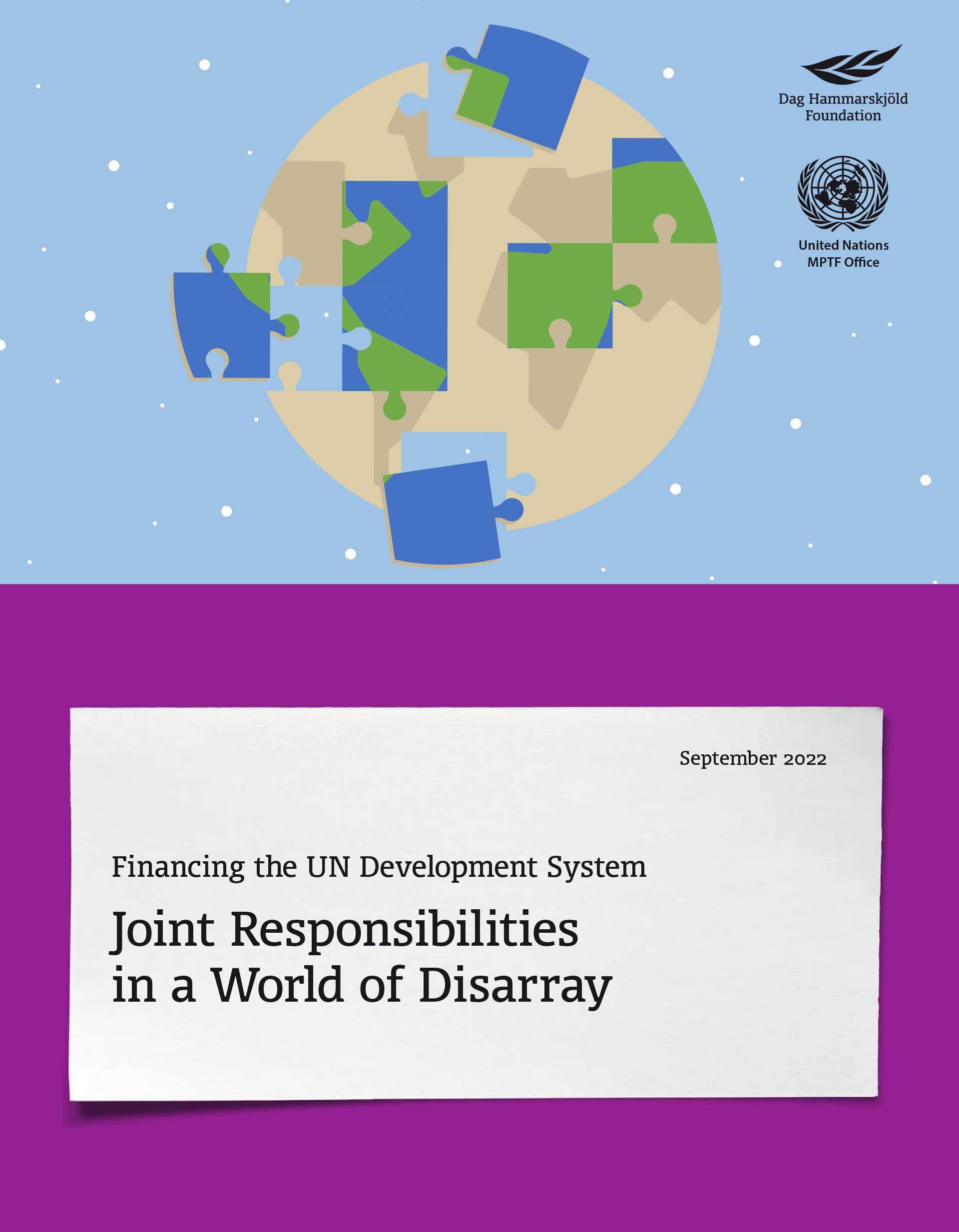More than ever, global challenges require a renewed and effective multilateral response. While many crises can be turned around, they cannot be solved by isolated or unilateral efforts. Thus, the need for global investment represents both a response to existential risk and an opportunity for shared prosperity. For the second year in a row, the world is no longer making progress on the Sustainable Development Goals (SDGs).1 In 2020, lockdowns imposed to limit the spread of COVID-19 pushed 166 countries into recession. At the same time, the global response to the pandemic depleted fiscal space in many countries, exacerbated by surging inflationary pressures and the conflict in Ukraine, which has set off additional shocks in terms of rising global commodity prices. As a result, an estimated 70 million additional people are living in extreme poverty compared to pre-pandemic levels.
In a world of disarray, we need to understand both the current situation and the strategic choices that lie ahead. With this in mind, the 2022 Financing the UN Development System report once again provides an overview on how United Nations resources are generated, allocated and used. It also provides a marketplace of ideas for a wide range of authors from international financial institutions, the UN system and academia, allowing them to share their perspectives on ensuring adequate financing and how funding quality can enable innovation and acceleration, all with the aim of realising the SDGs, preventing conflict, and meeting humanitarian and planetary needs.
Current international finance trends for pledge targets, actual expenditure and lending strategies show that ODA demand priorities are rapidly outstripping the supply of funds. A system refresh is therefore needed to break the cycle of deferred spending on human capital, sustainable infrastructure and nature. At the national level, countries need to create fiscal space through improved revenue mobilisation, spending efficiency, debt management and transparency. At an international level, multilateral cooperation – including debt service relief, debt restructuring, fresh financing and enhanced financial resilience – is urgently needed to provide additional liquidity.
In 2021, an estimated 44% of people below the poverty line were in countries on the World Bank’s fragile and conflict-affected situations list. To help turbo- charge implementation of the SDGs in these contexts, the United Nations require flexible and pooled funding platforms that can incentivize and facilitate integrated programming across the Humanitarian- Peace-Development Nexus, ensuring that multilateral response is comprehensive, relevant and effective. These mechanisms would enable UN entities to deploy their assets in a more coherent manner, including through sequencing and layering of interventions across different pillars and sectors.
Multilateral institutions, in particular those of the UN System, have seen a decline in the share of assessed and core funding which not only undermines its multilateral character but hampers its ability to rapidly address critical development needs, whether this be the impact of the pandemic or the food, fuel and finance crises emanating from the conflict in Ukraine. It also weakens the UN’s leadership role in helping countries get back on track towards the SDGs and stimulating accelerated action on climate change. Moreover, if core funding is critical for UN Agency mandates, pooled funding is critical for UN system coherence and a prerequisite for effective SDG financing.
This is why the decision taken by Member States at the World Health Assembly in May 2022 to increase the World Health Organization (WHO)’s regular (assessed) budget from 16% of its overall resource base today to 50% by 2028 is so important and encouraging. In doing so, Member States are providing a sustainable financial footing for WHO, which is currently overly dependent on voluntary earmarked funding, including from private actors.
Assessed contributions are membership fees that all Members States are obligated to meet. They hence represent an important channel for sustainable funding of key normative functions, and multilateralism more broadly, as they cannot be arbitrarily withdrawn. It is important to reflect on the reasons Member States agreed to increase assessed contributions in the case of WHO in order that wider lessons can be applied to other key UN normative functions and critical UN system-wide requirements for assessed contributions.




